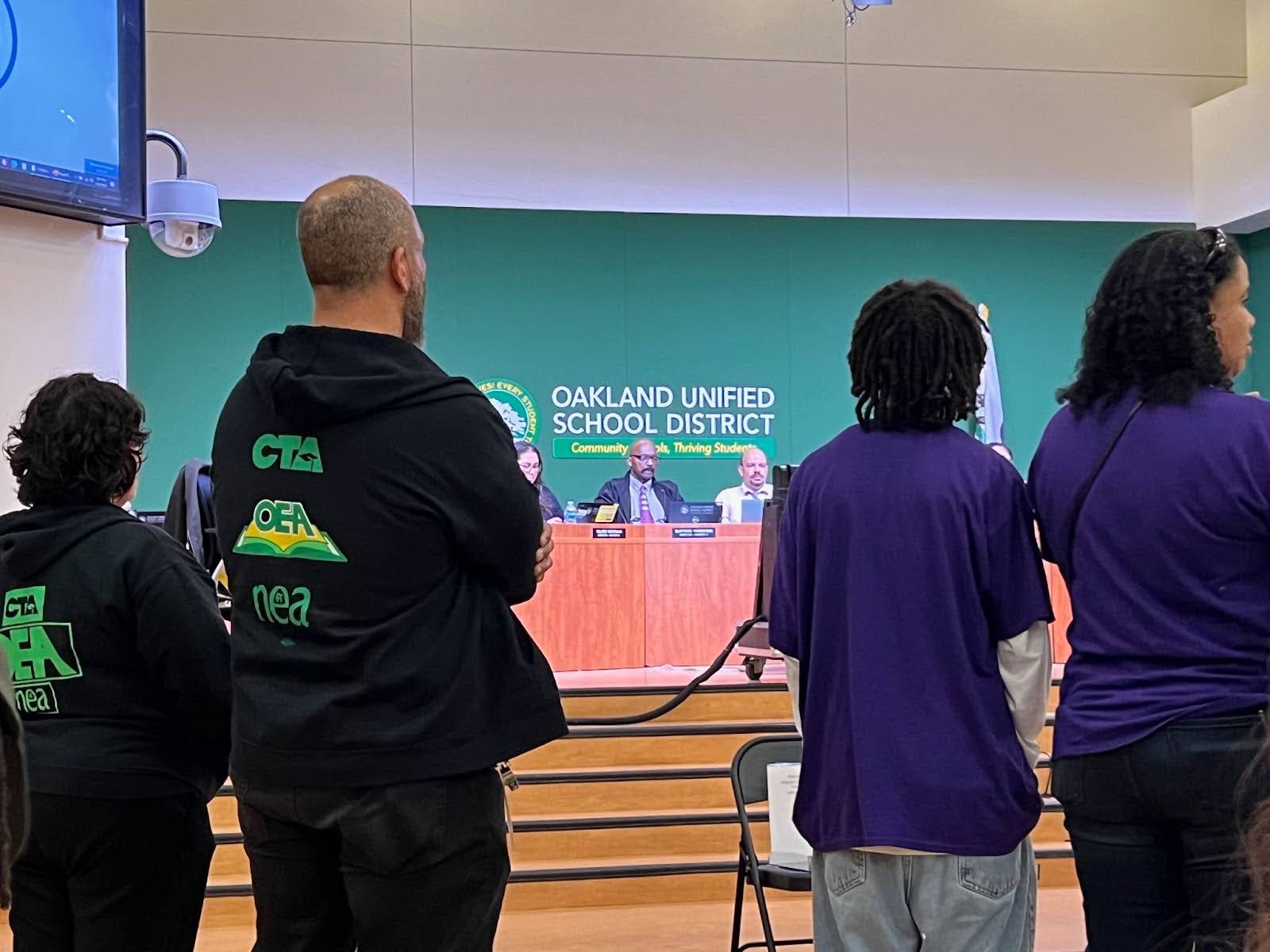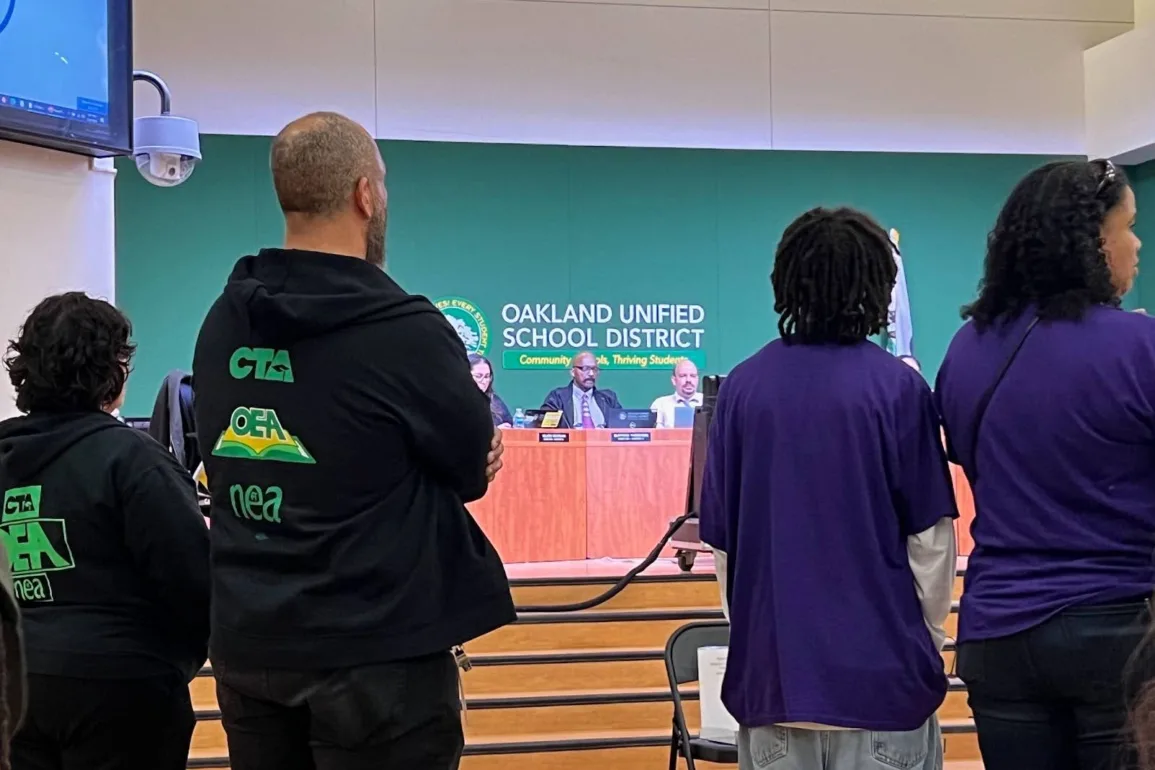
Oakland Unified School District is behind schedule on implementing two important projects, one with over $75 million in state funding.
Educators, parents and students voiced their frustration at Wednesday’s board meeting, saying the district has failed on its promise to establish a task force on student equity and a committee to allocate a grant for community schools.
“We have a very simple ask tonight,” said Kampala Taiz-Rancifer, vice president of the Oakland Education Association, during public comment. “That the board direct staff to implement both the Black Students Thriving Task Force and the community school steering committee by Feb. 1.”
OUSD received more money from the California Community Schools Partnership Program than any other district — nearly $67 million in the 2021-22 school year and over $8 million the following year.
Some fear that without action, the money will not be renewed next year.
Taiz-Rancifer, who is also a parent and first-grade teacher, said the goal of the steering committee is to give the community a say in what happens with schools.
“When we say community schools, we actually mean that, you know, the community gets a voice in the process,” she said in a phone interview after the meeting.
Board Directors Valarie Bachelor and Jennifer Brouhard expressed surprise that the task forces were not up and running.
Dexter Moore Jr., the district’s chief of staff and point person for both projects, told the board the task forces would be underway in February.
The two projects go hand in hand, educators explained. The Black Students Thriving Task Force was promised as part of the district’s plan to create reparations for Black students. In March 2021 the board resolved to create this group “not later than June 9, 2021.”
“Because their roles are very similar, we were trying to get them started at the same time,” Wally Scott, teacher on special assignment for the Black Thriving Schools Initiative at Grass Valley Elementary School, said in a phone interview. “We had all our members ready. It was the district that was dragging their feet.”
The same thing happened with the Community Schools steering committee, said Taiz-Rancifer.
“We had a scheduled date of kicking off the steering committee by Dec. 14,” she said. “But the district just blew it off. They just ignored us.”
Botched school closure plan
Without input from the community, many fear the money will be spent ineffectively and not for students most in need. School closures are a prime example, Taiz-Rancifer said.
“They have historically impacted Black students more than any other demographic,” she said. “District staff and community stakeholders voted together that we did not support the school closures.”
In February 2022, the board voted to close seven schools, mostly in Black and brown communities, triggering protests, rallies and a hunger strike. After Brouhard and Bachelor were elected, the board had enough votes to save five of the schools.
Taiz-Rancifer said the stakeholders were against the decision, and so was the teachers union.
The OEA filed a complaint against the district to the Public Employment Relations Board, which agreed that the district violated labor law by not providing enough notice or offering an opportunity to bargain before deciding to close schools.
Asked for comment after the meeting, Moore said he was not comfortable commenting on the surprise expressed by some board members that the work had not begun. He said only, “We’re looking forward to getting started with the work, we look forward to the partnership and appreciate the student and community leadership.”
Taiz-Rancifer expressed frustration with Moore and administrators, saying they are disconnected from the students and schools.
“I’d rather you like, come out of your suit, put some tennis shoes on, and come down here and talk to the kids so we can really, actually solve problems here,” she said.
Multiple students told the board about conditions in the schools, including dirty bathrooms and underfunded arts and music departments, ending their statements with the same question: How do you know what we need if you’re not asking us?
A second grader plainly said to the board, “It’s important to keep our promises.”
Top photo: Teachers union members and students wait to address the Oakland Unified school board, by Taylor Barton.



